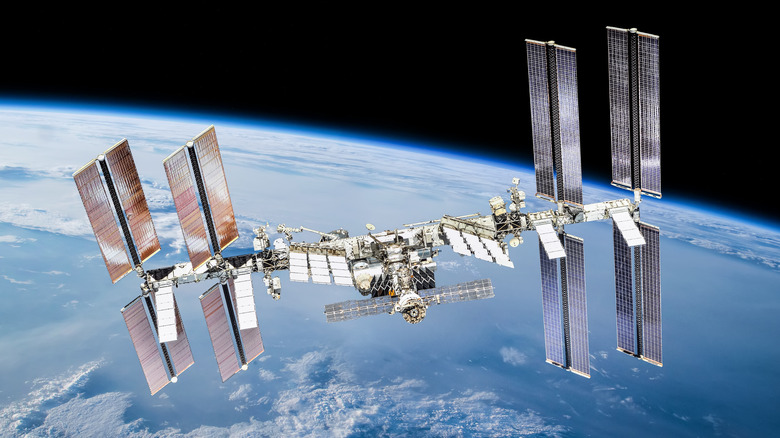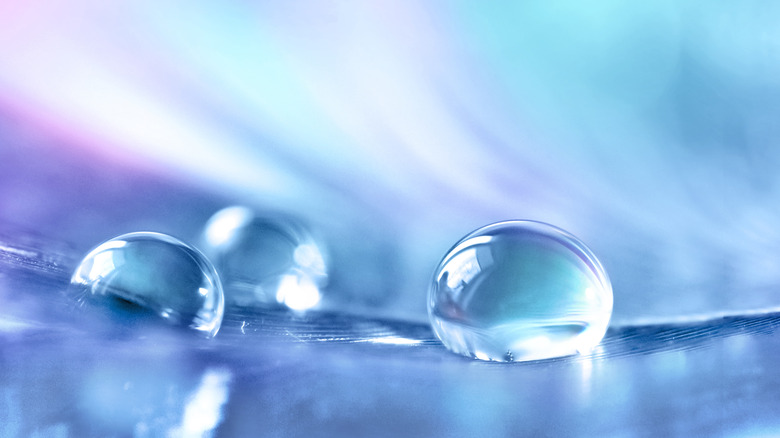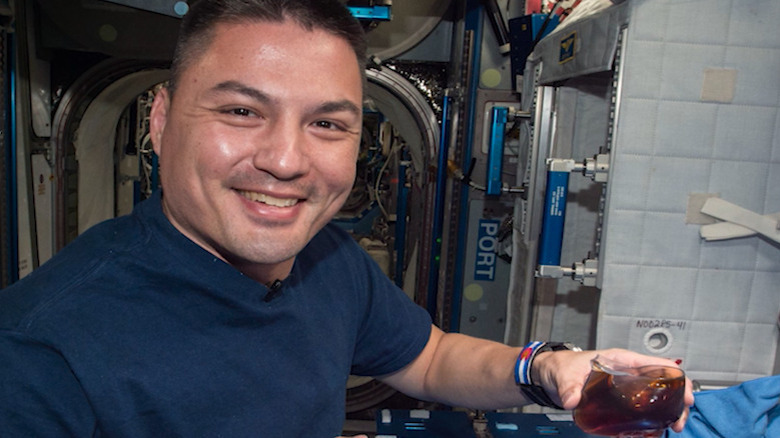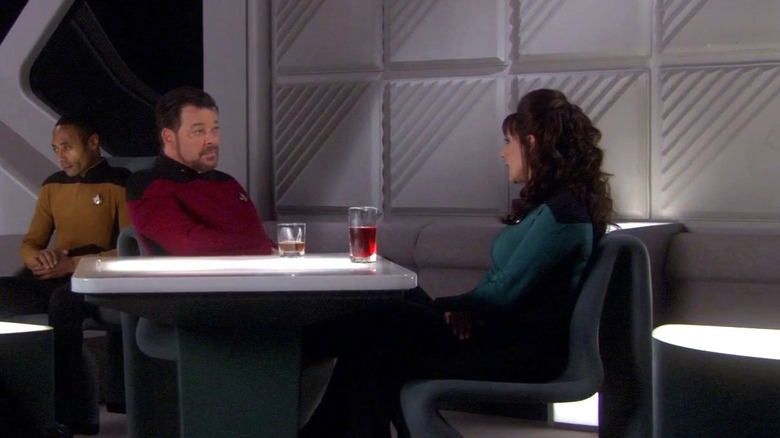The Reason There's No Beer On A Space Station
If science fiction is a predictor of the future — and very often it is — there may come a time when space stations and starships are equipped with all manner of recreational offerings, including vibey backlit bars where crew members gather for an after-work tipple. We can imagine places like Ten Forward on the Starship Enterprise — the futuristic hangout where Capt. Jean-Luc Picard and Star Fleet officers converged for happy hour — but it's not yet a reality.
That's because, in the 21st-century, alcoholic beverages are banned on NASA space missions. And that ban is in place for some very practical reasons. According to Inverse, drinking beer is especially problematic in a zero-gravity setting. The catch? The carbonation that gives beer its signature bubbles goes flat in space. Without the requisite fermentation, space travelers would be left with what amounts to unfermented hops juice. The same holds true for any carbonated beverage, including soda and sparkling wine. As NASA explains, "The bubbles of carbon dioxide in carbonated beverages aren't buoyant in a weightless environment, so they remain randomly distributed throughout the fluid, even after swallowing. This means that carbonated beverages, including soft drinks and beer, may become a foamy mess during space travel."
Another practical consideration? The physical ramifications of consuming flat beer in space. In a zero-gravity environment, those randomly distributed bubbles of carbon dioxide build pressure in the abdomen until they produce an acid reflux-like "wet burp."
Water, water everywhere
We know water is essential to human life. And because potable water isn't readily available in space, on board the ISS is NASA's water recovery system. Without delving into the minutiae, this system recycles urine to recover water that meets standards for human consumption. Alcohol, even in the smallest amounts, could muck up the system. Daniel G Huot, public affairs lead for NASA's Johnson Space Center, told BBC Future in 2017, "Use of alcohol and other volatile compounds are controlled on ISS due to impacts their compounds can have on the station's water recovery system."
Still, the idea of serving beer or alcohol isn't completely foreign to forward-thinking researchers. In 2017, students at the University of California San Diego experimented with ways to grow yeast in space — a giant step toward the possibility of making beer there. Inverse reported that the group was participating in a now-defunct competition to earn a place for their experiment on an Indian space mission.
And back in the 1970s, researchers working on NASA's Skylab program considered including sherry in astronauts' provisions. "We do study all sorts of ways astronauts' bodies change in space, including at the microbial level, Stephanie Schierholz, press secretary, NASA, told BBC Future. "We have a very robust nutrition program to ensure their bodies get what they need to stay healthy." Unfortunately, the sherry didn't test well in a zero-gravity setting, initiating a gag reflex among participating astronauts.
A cocktail party in space
But the instances of imbibing in space aren't zero. In Chris Carberry's book "Alcohol in Space: Past, Present and Future," the author tells the story of when NASA veteran John Grunsfeld was invited along with colleagues in 1997 to the Russian space station Mir by cosmonauts for — let's call it a social gathering. There they were trading space stories when cosmonaut Valeri Korzun had a surprise.
"When we were over there," Grunsfeld told Carberry, "Valeri came up with a little bottle. And someone asked, 'Oh, is that vodka?' and Valeri said, 'No. no. We would never carry vodka to space. It's cognac.' These were tiny little bottles with no more than 250 milliliters. [He] just gave it a tiny squeeze, and out came a singular ball, a round sphere, of cognac floating in the cabin. He gave each crew member a tiny little ball of cognac — no more than 25 milliliters each. It was a nice event, and as far as I know, nobody got drunk."
Back to the future?
That long-ago impromptu cocktail party in space was not a one-off for cosmonauts, as Smithsonian reports that they've been allowed as much as a drink a week for years. But even with the research related to space booze, NASA holding has held to its official ban. NASA researchers are experimenting with ways to address the issues involved with consuming beer and other adult beverages in space. They have already developed a microgravity dispenser that could enable astronauts to consume beer at an altitude of 200 miles. Still, if someday NASA lifts the ban, consuming beer in space will likely be a perk reserved for space tourists, not pilots or crew — at least while they're on duty.
But as space travel becomes the norm, and as space explorers boldly go where no one has gone before, who knows what the future holds? Unless, of course, science fiction had a track record of predicting future innovations — and if science fiction could imagine a space-side watering hole like Star Trek's Ten Forward, we're betting real science can make it happen. It's just a matter of time.



